Opera GX browser can now fake your browsing history when you die
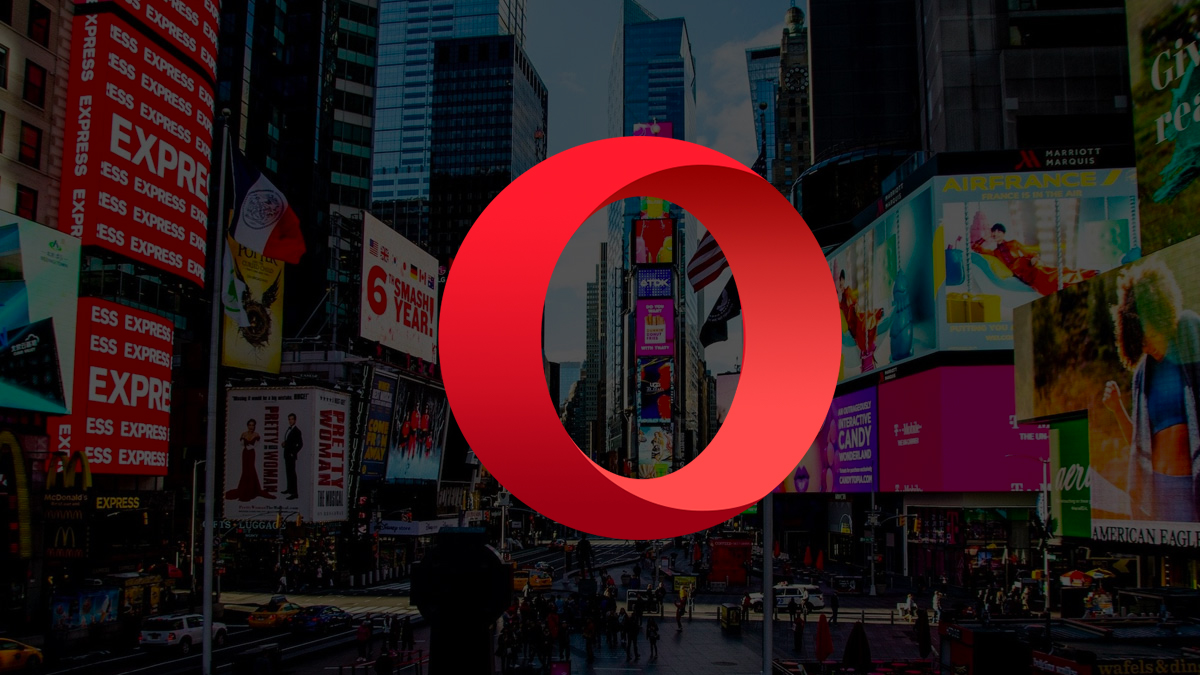
Whether the latest feature of Opera Software's Opera GX browser is useful or not is hotly debated already. The company announced the launch of the "fake my history" feature, which replaces a user's "questionable browsing history with a clean slater" after two weeks of inactivity.
Opera Software notes that this feature could alleviate user fears that someone else might browse through their browsing history after their death.
The company explains how the feature work on its Investors website. There, it explains the concept in the following way: "Continue browsing like you normally would; stumble upon your thousandth cat video, dive headfirst into conspiracy theory rabbit holes, and yes, even indulge in some occasional X-rated content. But after 14 consecutive days of inactivity, Opera GX will make a reasonable assumption – that you've fallen into a bottomless pit, gotten smacked in the head with a turtle shell, or chosen to punish yourself by switching to another browser".
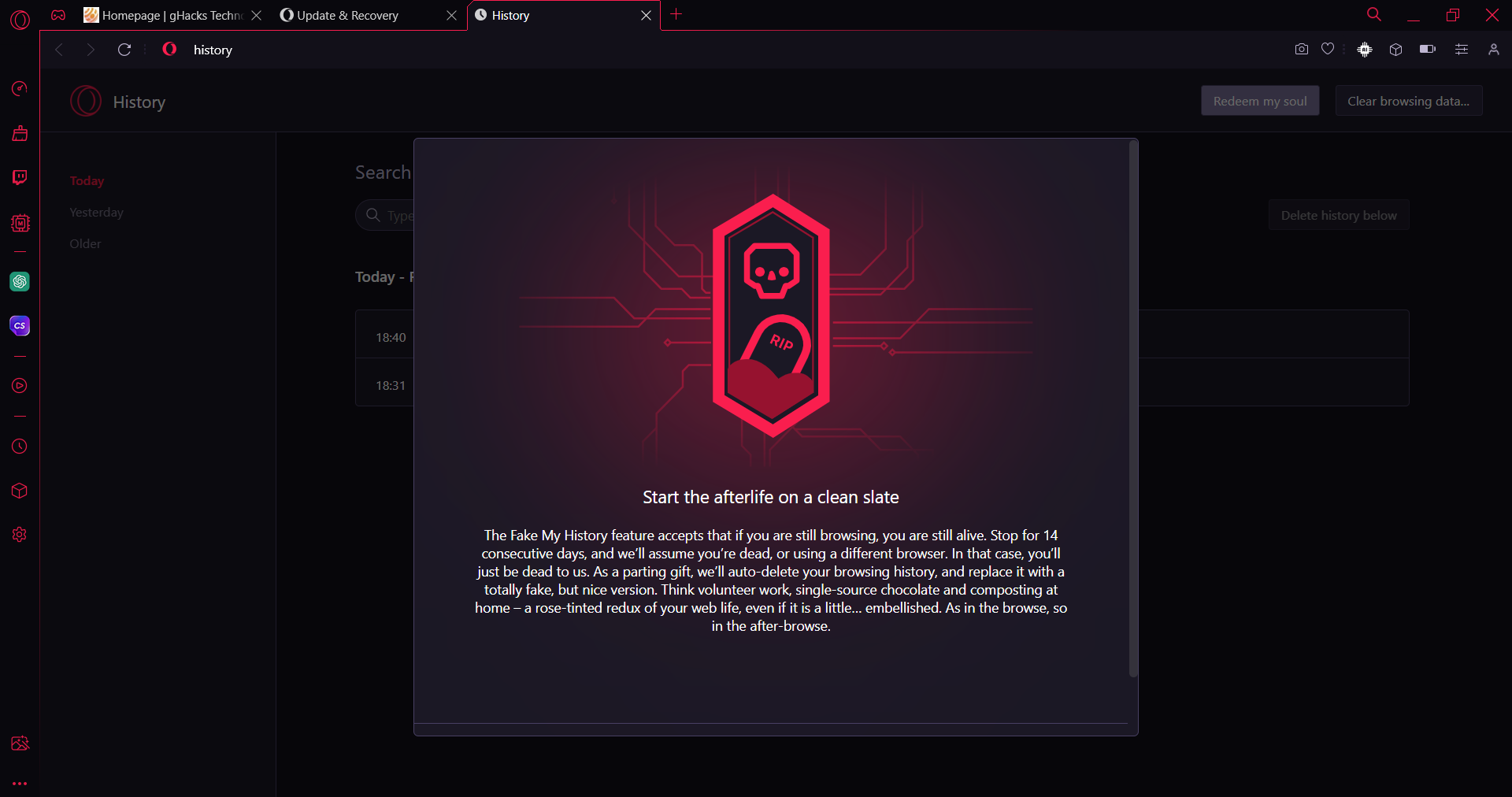
The browser replaces the entire browsing history of the user with "an entirely fictional" one. Unlike the former, it is guaranteed to be "surprisingly pleasant" so that a user's "nosy partner, parent or roommate" find searches that the "internet's most virtuous" user has made.
To activate the feature, Opera GX users need to open the browsing history of the browser. There, they find the new option "redeem my soul", which, when activated, displays a short intro to the feature. Selecting Activate enables the feature, so that the browsing history will be replaced when Opera GX is not used for at least 14 consecutive days.
There is also a "pretend I'm already dead" option to turn the browsing history into an assortment of fake searches and websites right away.
Please note that Opera GX will erase the entire history, but it will only populate the last 14 days with fake entries. Sample searches included "how to donate books", "free online courses for personal growth" and "how to help save the bees" and some of the opened websites included sites that matched the search topics.
The new feature has its limits. While it may not be possible for third-parties to recover the real browsing history, it may be possible to find out that the browsing history is fake. The tool works only in Opera GX, which means that the browsing history of any other browser as well as online accounts, e.g., Google, remain untouched by the feature.
Also, Fake My History only works if others are able to gain access to the device. If the device is encrypted or proper password protected, they may not be able to even launch the browser in first place.
Now you: what is your take on the Fake My History feature?



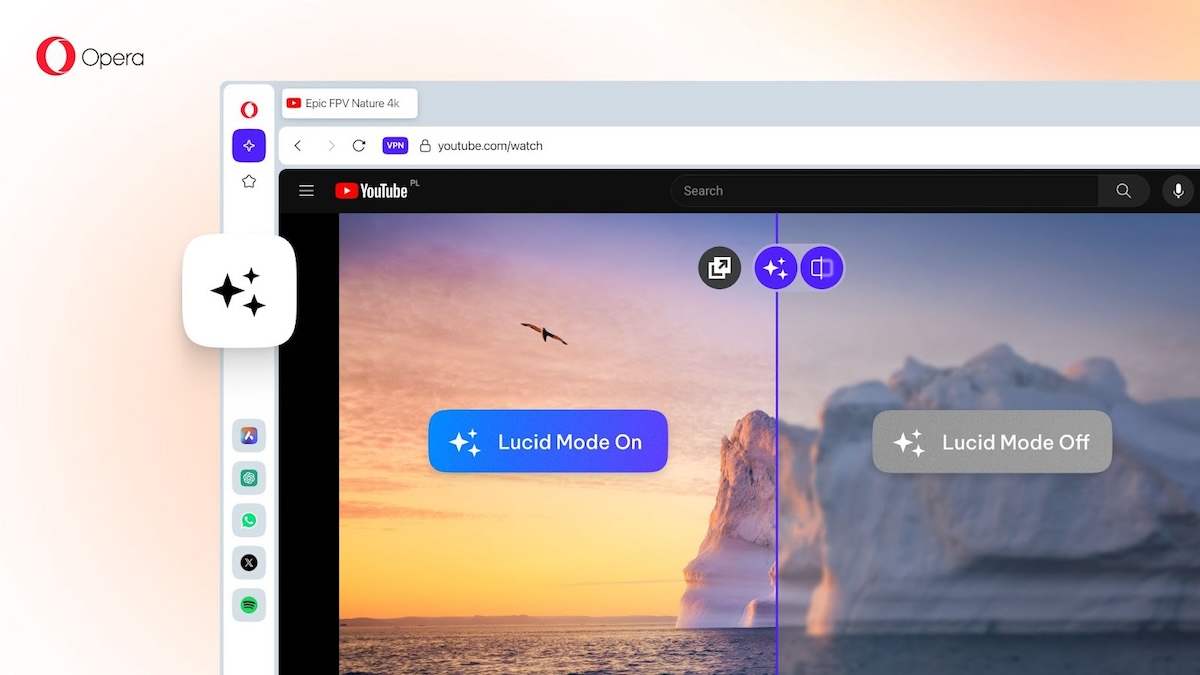

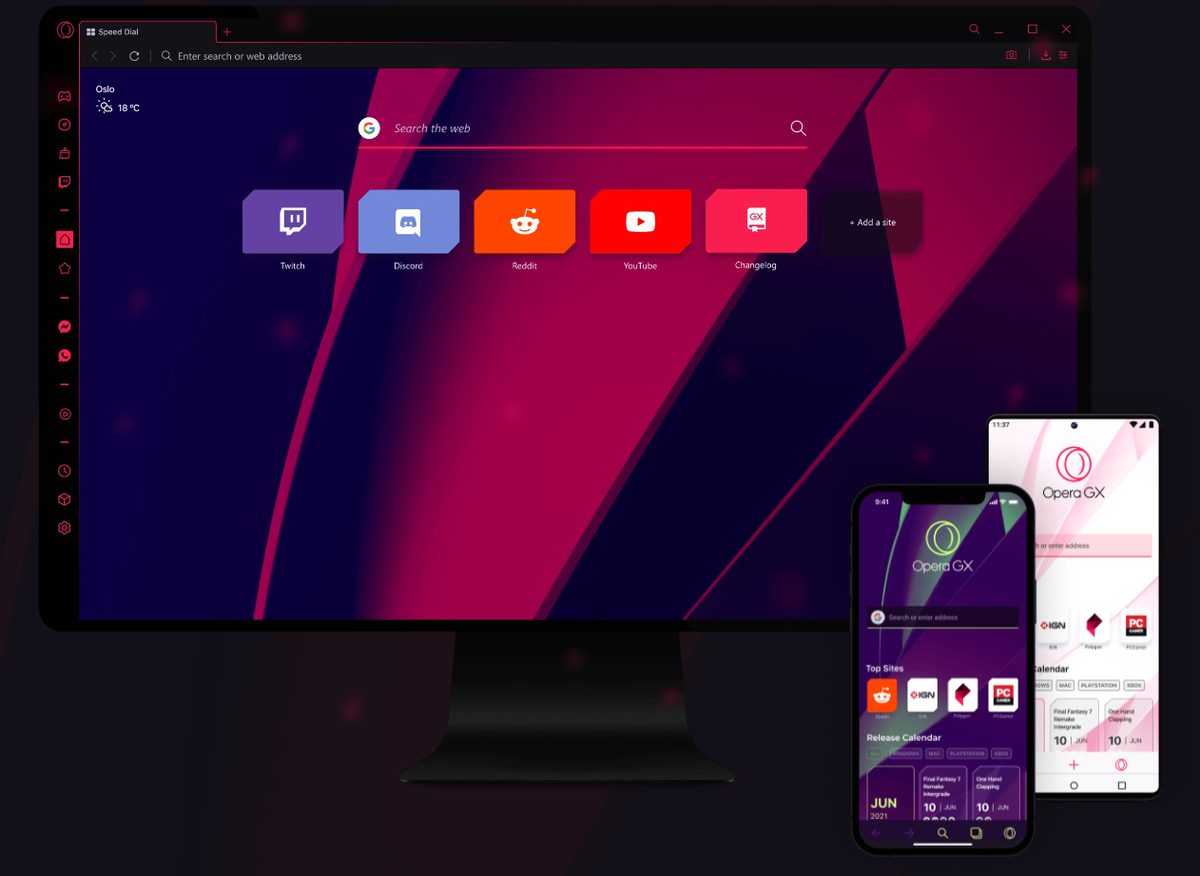
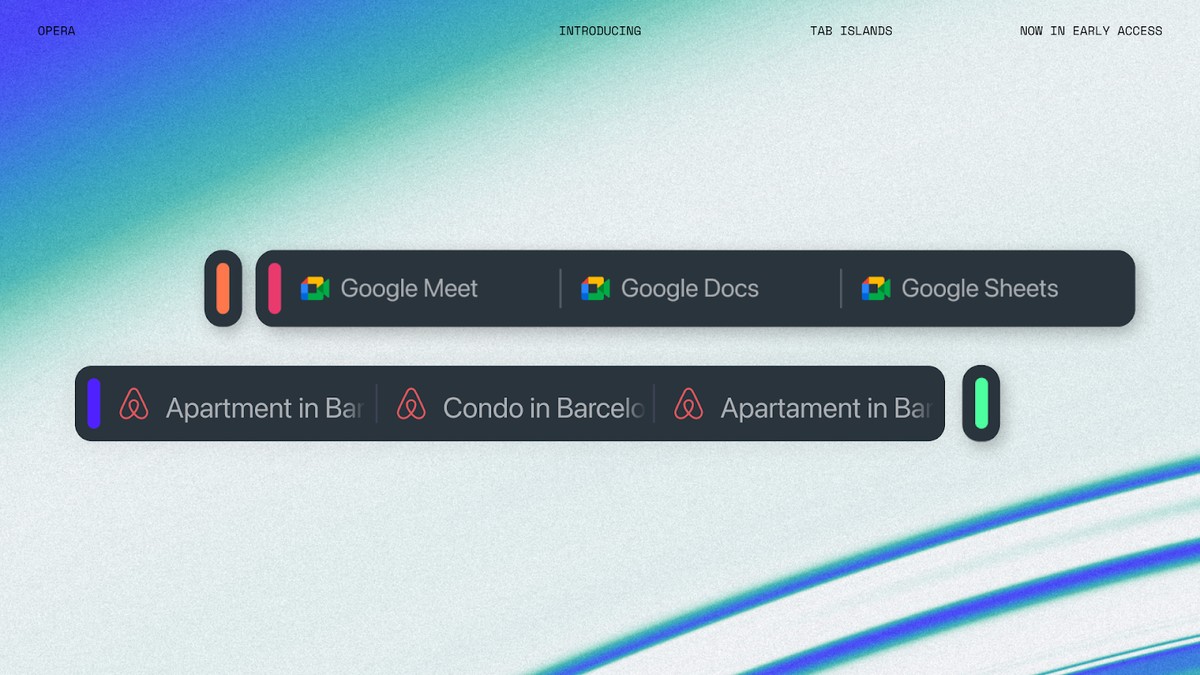
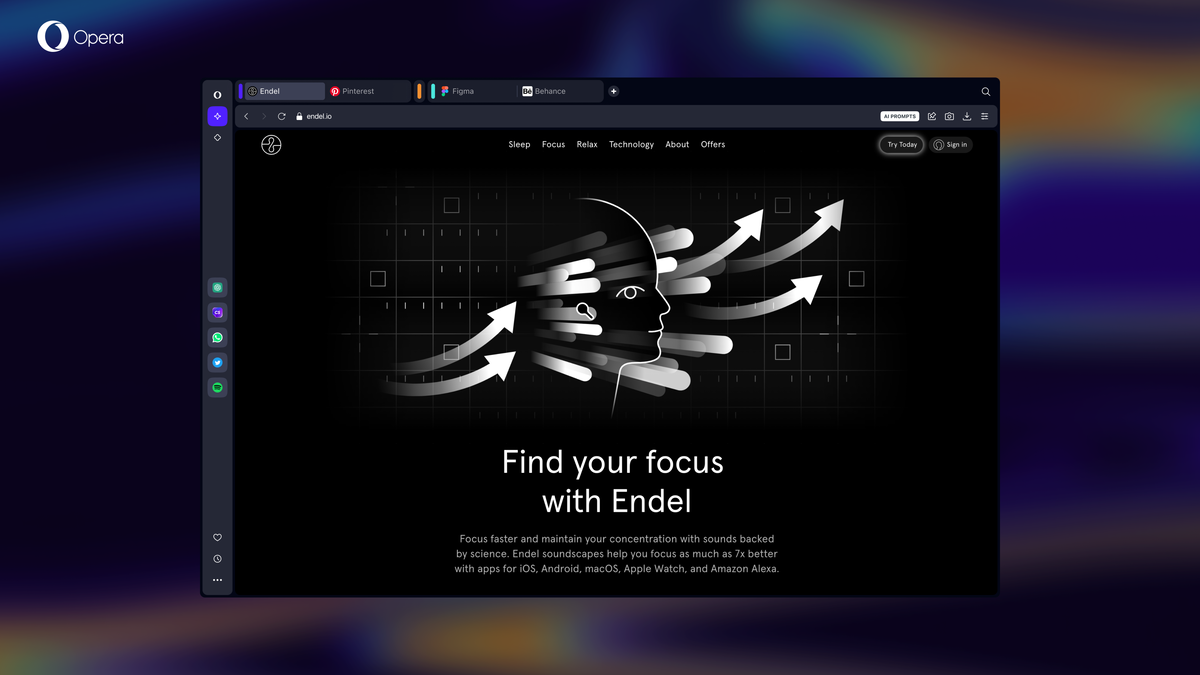
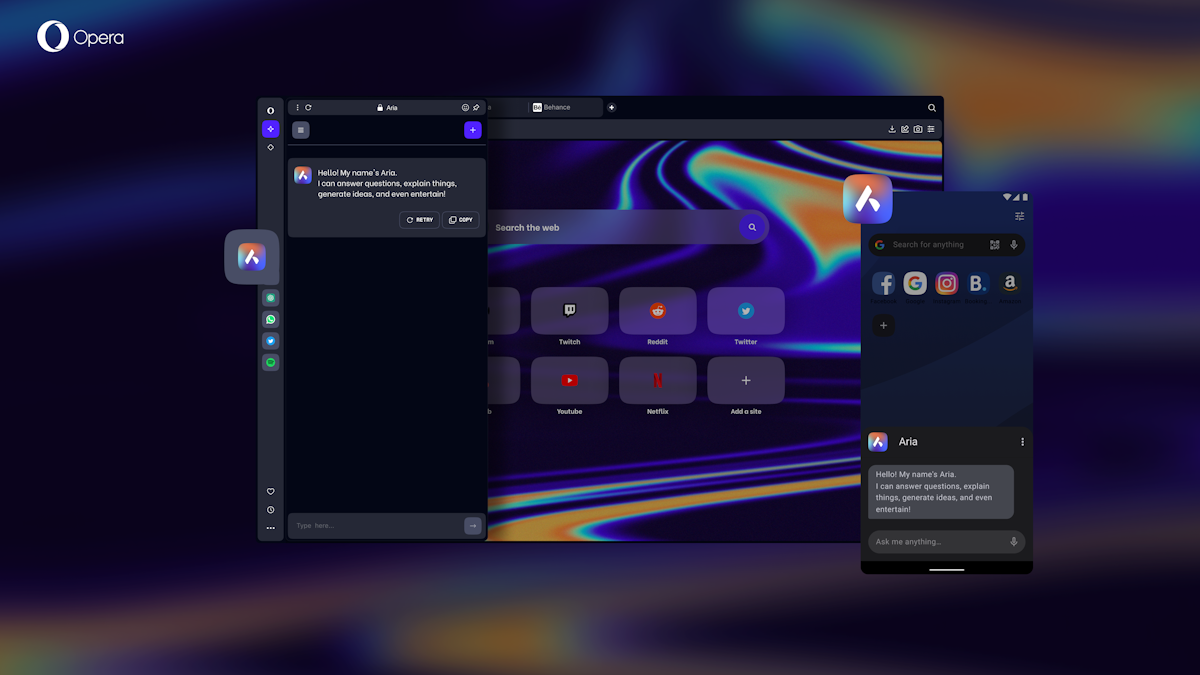










Depends on what they would substitute your history with. There’s no guarantee you won’t be labelled a dangerous insurgent or an absolute criminal. Not that I care very much since I’ll be dead anyway.
@TelV,
> Depends on what they would substitute your history with. There’s no guarantee you won’t be labelled a dangerous insurgent or an absolute criminal. Not that I care very much since I’ll be dead anyway.
+1 (kudos)
PS:
> v11.0.0 now on Floorp, but on the Github site it states that Windows 7/8 aren’t supported…
I already replied to this about 5 hours ago, but it seems to be pending because the url exists.
People would rather use multiple browsers than multiple profiles or better yet, InPrivate-Incognito mode, but then some will complain how the browser keeps “tracking them”
In fact, deleting or changing the history will not work, there are many features, including Site Data that will show what sites you have visited, or site/media engagement.
Then TypedURLs and all that.
It is easy (in Windows) to make InPrivate browsing the default, for links and all that, but people would rather complain about browser saving information.
But there are already extensions to stop history from recording, which would do the same as this.
There are few browsers that have been improving normal windows, where you don’t necessarily need Private windows to make your experience better.
Like Brave, it has Off-The-Record feature, which can be enabled in any site by using modheader or requestly, and all you need to do is to add the response header to have Request-OTR with a value of 1.
They have been improving the mode, because still has problems, but will be a good alternative for not having to use Private windows soon.
Also “Forget me when I close this site” feature, not about history but about Site Data.
Ephemeral Storage for first-party data as well, which works the same as “Forgetful Browsing”, but better if you want to use the isolated storage for your information.
I mean, there is no Browser doing that, only Firefox with the Total Cookie Protection, but Firefox is just annoying.
Some people might like features like messengers in sidebars and searching on sidebars and all that, but since extensions don’t work in sidebars, Opera, Vivaldi, Edge, Chrome… then, all your information gets leaked everywhere, because now your data is allowed to be harvested by any page.
But like I said, InPrivate or InCognito mode can be made default easy, but people don’t use that to avoid these type of weird features being added like if OperaGX would know you died or not.
It is more of an April fools joke than something realistic and be excited about.
At least they are happy 1 million people are using Opera AI, but eventually the users will go somewhere else because Opera has too many weird things like not allowing an added search engine to be default = they want money so bad they would not let you change or delete its partners so you are forced to use it.
Opera is your browser if you want a laundry list of useless features and a lack of home button.
It’s 2023 and people are still keeping browser history.
Do you also carry a huge suitcase on your back everywhere you go stuffed with every receipt you’ve ever received, tax form you’ve ever submitted, or letter or email you’ve ever written?
Learn to use bookmarks for truly important sites, and learn that most sites are not truly important.
You guys are in a bubble – browser history is absolutely a useful feature to have.
Have you ever remembered something you saw, or a site you visited which had useful information – but when you originally came across it, you didn’t see it’s value?
Or maybe you found a site/article/video on one PC, and then tried to find it on another without any success – or maybe you’re trying to find something you saw, to show someone else.
There are lots of reasons why you might not have bookmarked something very useful when you first saw it.
“Search engines and the internet Archive give an extremely high likelihood of finding a site again if the person forgot to bookmark it” I call bullcrap, reproducability in searching sucks these days, at least once a week or month I will come across this problem, the only saving grace is history.
“often taking up many GB’s of hard drive space for no real reason” many GBs is not true for regular people, maybe 1 or 2 GB after like 2 years, clear it annually then, or something? Better safe than sorry.
“Searching through a browser history for an old website is often terribly frustrating” I agree, on Firefox, but on Chrome it is a breeze.
“the URLs commonly do not give much useful information” URL is not the only bit of data stored, also the name of the webpage, that combined with date accessed is actually far from useless.
If you don’t use history, that’s fine, but to pretend that it’s completely irrelevant is silly, not sure what the current year has to do with that fact.
@bruh – >”Have you ever remembered something you saw, or a site you visited which had useful information – but when you originally came across it, you didn’t see it’s value?”
I use several different devices daily. The only way that browser history could possibly be useful for me in the scenario you envisage is if I entered full blown CIA/NSA/Google surveillance mode and used Chrome and allowed them to track me on all devices in one central repository. But not only is that completely stupid, as I can easily recreate any prior search, but it’s also a massive security risk.
@Andy Prough
I use several devices daily as well – never did I advocate for signing into anything, or syncing anything, please don’t put words in my mouth. I also never advocated for using one browser over another, I expressed my annoyance at Firefox, yet I did that as a Firefox user.
When you assume a bunch of things about the other person, you end up drawing fictitious conclusions and battling against fictitious strawman arguments
Is it unfathomable to think that on each of your devices, it is possible to have a local history? That is exactly the scenario I (tried to) describe. I found an interesting site on device 1, at location 1, and remembered it quite well – when I went to device 2 at location 2, even with my decent memory of the web page, I couldn’t ever find it. Hence why having a local history on device 1 was helpful, as I could just go back to device 1 and actually note down the exact URL, or send it to myself.
“But you can use bookmarks” you might say, well you don’t always know you’ll value or need to revisit a site when you first visit it.
I’ve had trouble finding articles/websites even with decent memory, and using keyword and time-based searches, sometimes something is just not as easy to find a second time around – if you want to say it’s never happened to you, that’s fine, I can take your word for it. But I’ve had the feeling of “losing” something that I had previously known, and it is not a pleasant one, so I’d rather be able to retrace my steps using a feature that has been built into browsers for probably 20+ years, called the “history”, call me old fashioned I guess.
bruh – >”I’ve had the feeling of “losing” something that I had previously known, and it is not a pleasant one, so I’d rather be able to retrace my steps using a feature that has been built into browsers for probably 20+ years, called the “history”
Good enough, as long as you know that anyone or any malware that gets its hands on your device gets all that history also, so it’s not only unecessarily burdensome but it’s also a walking timb bomb of all kinds of risk.
I know people that still print web pages on paper and still print their emails, and that keep huge piles of printed paper laying around documenting their online adventures. Does it work for them? Yes. Is it an archaic means of dealing with online communications and massively complex and a huge security vulnerability? Absolutely.
There’s many other ways of keeping tabs on important online research that are vastly more efficient, such as Zotero. Or even making your own archive.org page and using extensions to send your favorite sites over there. This is really a different discussion than where we started, but I guess part of what I’m saying here is that if you really care about online research then you’ll work with much better tools than with browser history.
In my view based on my experience browser history’s usefulness doesn’t compensate its drawbacks.
Personally I disable it, i.e. for Firefox : pref(“places.history.enabled”, false);
Tab history nevertheless is kept : back-forward pages in a given tab is pertinent IMO.
Browsing history, when some sites such as Google Maps, increments it at every sliding of the map (adding to the history the map location) is a pain. generally speaking browsing history is a full-time privacy intrusion assistant.
I think the argument for those who use/keep a browser’s history is the same as that concerning cookies, local storage (in one word : all the data a site fills your browser profile with) : to surf without the embarrassment of analyzing in real-time what may be of interest for them and therefor bookmarked. The same as stuffing oneself with food without any consideration of quality. This is a typical example of a state of mind based on blind consumption, free of analysis : a modern world’s sign of decadency.
Hence, in my view, using a browser free (liberated) of its user history is perfectly possible as it is perfectly advised.
@Tom Hawack, “browser history’s usefulness doesn’t compensate its drawbacks.” well if personally you don’t see a use for it, that is fair enough, but the original post by Andy is lightly mocking the concept of anybody needing/wanting history, my reply was meant largely to provide a counter-point, which I think I did fairly.
But I do find the framing of a local history log having “drawbacks” as a little odd, because this feature has existed in browsers for a very long time, and as far as I’m concerned people have only started being really annoyed at it in recent times – as a feature that’s turned on by default in all browsers, the majority of the world is somehow plodding along just fine with all these drawbacks. Just an observation…
“Browsing history, when some sites such as Google Maps, increments it at every sliding of the map (adding to the history the map location) is a pain. generally speaking browsing history is a full-time privacy intrusion assistant.”
I came across the same thing when composing foreign language emails with the assistance of google translate. Every single added character is a new URL entry in the histor, after 1+ week of work with google translate, this actually broke my history so hard I could not even wipe it from inside chrome, I had to back-up the file manually and let a new one be created. So, there are edge cases – but I definitely believe that such sites which “spam” URLs can simply be run in a private mode (it was my solution), which eliminates the problem entirely and you don’t end up throwing the baby out with the bathwater.
“full-time privacy intrusion assistant” it is an inane feature that definitely had zero malicious intent associated with it when it was first included in browsers many years ago. It is not an “assistant” in the same way that the bookmarks feature is not an assistant, this is a silly framing especially considering how the log is entirely local, it technically doesn’t even need the internet to function.
“This is a typical example of a state of mind based on blind consumption, free of analysis : a modern world’s sign of decadency.”
Sorry Tom, I hate to break it to you, disabling browsing data doesn’t make you more cool, more woke to tech tyranny, or more down with the kids. I don’t mean to sound rude but your phrasing here is used very childishly to paint “black and white” of internet users. You use the phrase “a modern world’s sign of decadency”, yet a feature that has existed in browsers for probably 20+ years has nothing to do with “modern” anything.
“Hence, in my view, using a browser free (liberated) of its user history is perfectly possible as it is perfectly advised”
Oh it’s perfectly possible, if you’re aware of it, and use other features such as bookmarking, but “perfectly advisable”? Well I would still point out to people what either option entails and let them make their own mind up.
I don’t mind having the argument, on the merits of it, but the framing really raises my eye-brow, “why is this being tackled from such a perspective?” is what I am thinking here. A lens associated with one narrative is being applied to look at something which doesn’t require it.
@bruh, let’s face it : most users surf blindly in the same way they download : consumption, which is today’s credo. And I confirm this is IMO a decadent behavior. Most. Of course not all but majorities define a society, not minorities.
The fact browsers’ history has always been a fundamental feature hasn’t anything to do with the fact that, in a similar way to cookies, it is a flagrant example of the way these features which have nothing to do with modern gadgets, have been hijacked from their original purpose : it is no longer possible to use such features with privacy in mind. The solution is either to block them systematically (i.e. history) or selectively (i.e. cookies) … but more you dig into the “natural” features of a browser more you discover at what point many of them are diverted.
As always, controlling tools means work to compensate what they bring natively, and this work requires a minimum of knowledge : a browser is no longer a horse ride but increasingly an airplane’s cockpit. Because of that the immense majority of users are tracked to their bones. And most of them don’t care as long as they get their bone : still better to be a blind consumer than a hound-dog I guess.
When it comes to our original topic, a browser’s history, it remains advisable to disable it, as it remains advisable to carry the words of privacy, what privacy means, what privacy implies. Advisable when the topic is in the air, not at a party calling for everyone’s attention of course :) Advisable, for those who wish to hear of course.
Personally I remained stunned by the hiatus between today’s WWW and the way it is treated by the media who focus the masses (not those, specialized of course) : they lack to point out the dangers and moreover always take the same references to illustrate examples, i.e. Google when searching, Adobe Reader to display PDF and so on : alternatives which are essential and work as fine for most of them are never solicited.
I fully understand your approach, calmly exposed, but I believe you are under-estimating the dangers of today’s web in terms of privacy. This said I must point out that security is better than it was but again, at what price? All is done by major tech companies (GAFAM but not only) to add “backdoors” to what appears as, because it often is, a welcomed feature, and that’s the ingenuity of the process. Be said this is the very way modern intelligence services operate : don’t clash, disturb only when the context enables it.
I forgot to mention that in the case I’ve really missed a page’s pertinence (for me) and that, because browser history is disabled) I pain to recover that page, I refer to my tabs’ history which is enough to remind me what tab included the page i’m looking for (given it wasn’t the first of course). I set consequently the number of tabs’ history to its maximum (25 on Firefox) :
// Set the amount of “Undo Closed Tabs”
// WARNING : set to ‘0’ disables the “Recently Closed Tabs” feature but not “Recently Closed Windows” or any history
pref(“browser.sessionstore.max_tabs_undo”, 25); // DEFAULT=10 | WE SET TO 25 ( limitation of the WebExtensions API)
Of course this limit of 25 won’t handle first opened tabs when the browsing session is lengthy, but enough for those who quietly move around rather than running like a hurricane on the web’s places.
@Tom
Regarding your useful tip:
pref(“browser.sessionstore.max_tabs_undo”, 25); // DEFAULT=10 | WE SET TO 25 ( limitation of the WebExtensions API)
I was going to change this from 10 to 25, but it was actually already set to 25, so I guess 25 is now the default value as this was not something I had changed.
@Karl, to my knowledge and after having checked it on the Web, “browser.sessionstore.max_tabs_undo” default is still 10. Maybe has one of your extensions changed it to 25?
As you know the easiest way to know the default value of a pref is to “reset” it. This setting here is among the ones I’ve locked (I use Autoconfig) so I cannot test it unless to unlock it and then restart Firefox, but I’m quite sure default is 10.
Good point. If a browser implements history, it really only needs to be volatile (RAM only) for the currentbrowsing session.
Browser history was important in the 1990’s when there was no reliable way to find a website again once you had found it the first time. There was nothing we would call a real search engine at the time, just catalogs of certain web pages. Without finding a website link on some list, the chances of stumbling upon a website a second time were very remote.
Today, browser history is a horrendous burden, often taking up many GB’s of hard drive space for no real reason. A person can instantly bookmark a site by hitting the star button, and then their browser can be told to always search bookmarks for relevant search results. Search engines and the internet Archive give an extremely high likelihood of finding a site again if the person forgot to bookmark it. Searching through a browser history for an old website is often terribly frustrating, as the URLs commonly do not give much useful information.
And worst of all, browser history can be used against people in courts to build sham cases against them, especially people living in countries with political regimes that use the criminal justice system to silence critics.
Hilarious.
Sounds like a life insurance’s “Die, we’ll take care of the rest”.
Brings to my mind,
Buddy Holly & The Crickets – That’ll be the Day
[https://www.youtube.com/watch?v=RU769ErbfxU]
“Well, that’ll be the day, when you say goodbye
Yes, that’ll be the day, when you make me cry
You say you’re gonna leave, you know it’s a lie
‘Cause that’ll be the day when I die […]”
What I do wonder is if this novelty intervenes for those who have an empty history : does it create a fake history over an empty one? I mean, i.e., I wouldn’t like anyone believing I had visited a Google Website when I had spent my life explaining that I never visit Google Websites. LOL. Confused.
Faking history… The useful tool of your friendly CCP neighbor.
I’d like to thank them for their influence and management.
“Faking history… The useful tool of your friendly CCP neighbor.”
Does that make you the neighbor who attempts to access the browsing history of his neighbors when he suspects them of being communists ?
CCP? What’s that?
Could be CCCP, or USSR : “Back in the US, back in the US, back in the USSR […]”.
In fact ‘CCP’ has dozens of meanings : [https://www.allacronyms.com/CCP] of which ‘Controllable Pitch Propeller’, one of my favorites :)
U should send a postcard to Poland where Opera GX is developed LOL
@Tachy,
> Privacy is one thing, dishonesty is another. The former is something we need more of, the latter is something we need less of.
@Cassette,
> I won’t be embarrassed about my internet history when I’m dead.
(Probably because it seems to be an “English translation” mistake, I replaced it)
I strongly agree with both views.
Now, I have always avoided Google, Microsoft Edge, and Opera Software products and will never change my mind.
It is important to discipline ourselves even in a virtual reality environment if we are hesitate to expose (speak, show) publicly in the real world. Because we do not, social media has fallen into a “lie-filled” and shameless world. We should be strongly self-disciplined.
Seems stupid, just encrypt your disk with LUKS instead.
All browsers today seem like one big joke. We need a serious browser.
Interesting… I would not have expected this of Opera. Still having trust issues with the company.
As an aside: How long before we see a dead man’s switch that not only handles the major browser but cleaning the OS itself.
Enter the wrong password X number of times, wipe the OS or perform certain actions on select directories.
I distinctly remember in the past I had a cell phone that had a setting where if you typed the password incorrectly over X number of times it would format the phone. I don’t recall if it was an iPhone, an Android, or a BlackBerry 10 device but it was one of those three operating systems.
You won’t be embarrassed about your internet history when you’re dead.
Privacy is one thing, dishonesty is another. The former is something we need more of, the latter is something we need less of.
Why not use a private window if you want to access a questionable site?
I don’t really understand why I would want a browsing history. As such I always use private mode. If there’s something that I need to come back to later, that’s what the bookmark feature is for. But really, I just don’t see the appeal of leaving a complete record of all my activity all in one place for anyone to find.
Absolutely LOL. I don’t like to die, it’s bad for the health. :S
Of course, it’s impossible for anyone to access your device before the 14 days!
One thing about death is, your face won’t go red from shame and embarrassment that you were gullible enough to install Opera and enable the feature, thinking it might protect your reputation.
Heh, probably a feautre I did not see any browser maker would launch. Interesting, and quite funny, but probably useless for most that know how to handle this. I have my browser set up to not save any history and delete all data at each exit/shut down. So not much history to fake up in my case. I would probably be more concered if someone went through my bookmarks, they could tell more about me than my non-existing browser history lol.
P.S
I hope you got a nice summer vacation, Martin.
Or just set your browser to delete history on closing, much easier and nothing can go wrong.